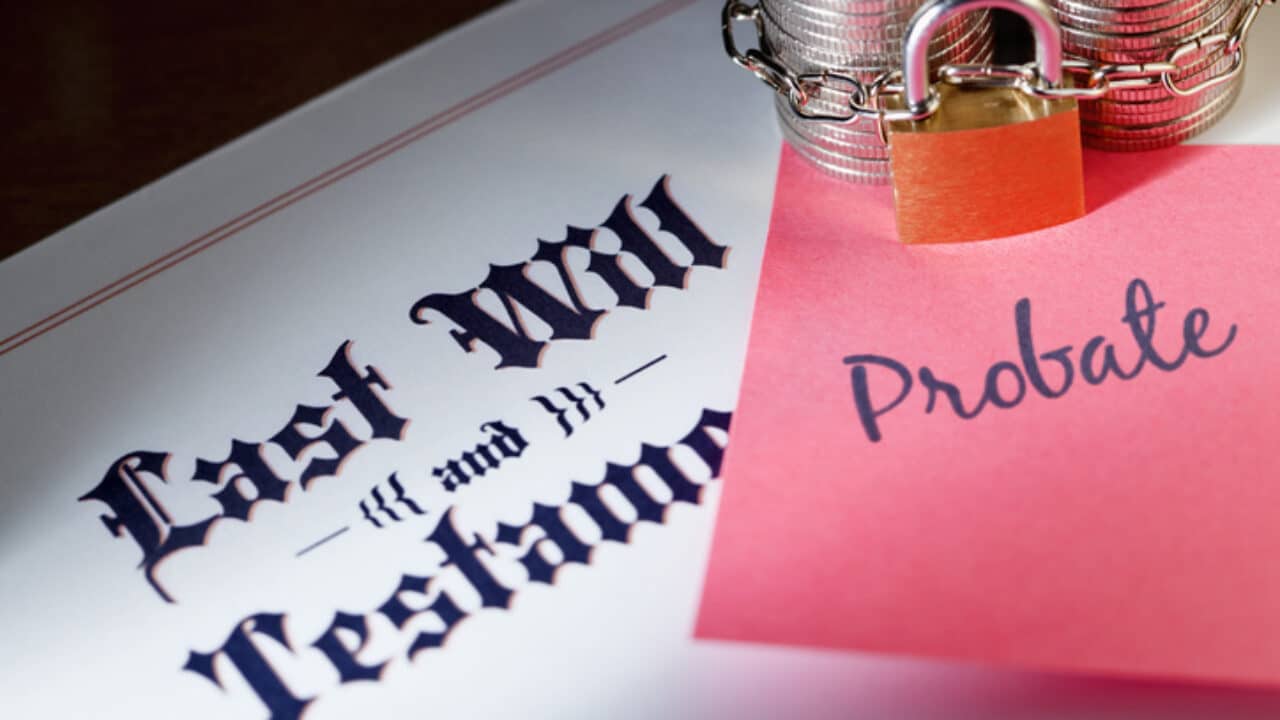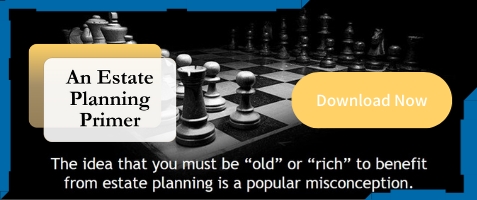
Estate Planning: How to Avoid Probate
What is Probate?
Probate is the court-supervised process of authenticating a last will and testament. It includes locating and determining the value of the person’s assets, paying their final bills and taxes, and distributing the remainder of the estate to their rightful beneficiaries.
In cases where there is no will (referred to as dying intestate), probate is still required to pay the decedent’s final bills and distribute their estate. In the case of no will, the probate court directs how the decedent’s property will be distributed according to the state’s intestacy laws.
The probate process is set up to ensure the validity of a will, protect creditors by ensuring that valid debts of the estate are paid, and provide for an orderly distribution of assets to heirs.
The probate process may have noble goals, but whenever possible, you want to avoid probate. In addition to being costly and complex, probate creates delays in transferring assets to heirs. In addition, the probate process is open to public scrutiny, which is something that many families want to avoid.
What Doesn’t Go Through Probate?
We need to be clear about what goes through probate and what doesn’t. Basically, probate is necessary only for property that was owned solely in the name of the deceased person or a share of property owned as “tenants in common” (for example, an interest in property owned with someone else as an investment). There are certain assets that do not go through probate (and, in fact, can pass to someone else regardless of what a will states).
Payable on Death (POD) Accounts
Payable on death accounts are bank accounts (checking, savings, money market, CDs, U.S. savings bonds) that allow for the money remaining in the account to pass directly to the beneficiaries named by the account owner.
Transfer on Death (TOD) Accounts
Similarly, transfer on death accounts (some examples include retirement accounts, brokerage accounts, stocks, and bonds) automatically transfer to the beneficiary when the owner dies. These accounts transfer by contract, and thus are not part of the probate estate.
Life Insurance and Annuities
Other contracts, like life insurance or annuities, also avoid the probate process. Because these transfer according to the beneficiaries named on the account documents, you want to ensure that you have named beneficiaries (as well as contingent beneficiaries). Otherwise, these accounts will have to go through probate.

How to Avoid Probate
We already mentioned that a will goes through probate. However, the probate laws in some states do allow for a small estate to forego the probate process. For example, under Virginia law, if the total estate does not exceed $50,000 and at least 60 days have passed since the decedent’s death, the estate may not have to go through the full probate process. But for estate’s larger than that, what options are there to avoid the probate process?
Trusts
One way to avoid probate is through a living trust.
One difference between a will and a trust is that a will only goes into effect upon death, while a trust is established and in effect while you are still alive. In a trust, legal title to assets are vested in a trustee who manages the assets for beneficiaries. To form a trust, money or other property is retitled to the trustee. Often, the person who creates the trust is the trustee, and the assets are managed just as they were before they were retitled. The reason you want to create an inventory of assets at the beginning of the estate planning process is for this reason: unlike a will, where you can say “Everything I own goes to this person,” in a trust, you must actually move every asset into the trust. It is a more complicated process and costs more to set up than a will, but it avoids the cost and delay of probate.
There are two general types of trusts, each with their own advantages and disadvantages.
Revocable Trust
In a revocable trust, the grantor retains the right to revoke the trust at any time prior to incapacity or death. Much like a will, it allows you to change your mind any numbers of time during your life. Upon death, assets pass to the heirs under the terms of the trust. While a revocable trust avoids probate, the assets are included in the gross estate for estate tax purposes.
Irrevocable Trust
For those concerned that their estate might be large enough that it could face estate taxes, there is another option. In an irrevocable trust, the grantor cannot take back the property that was transferred to the trust. That can obviously be a downside, but there is an upside. By giving up all right over the assets transferred to the trust, the value of the trust assets can be excluded in the gross estate for estate tax purposes. An irrevocable trust can take advantage of the annual gift tax exclusion (and the lifetime gift tax exemption) to transfer money tax-free to heirs.
When to Get Started
It takes longer to set up a trust than it does to write a will. Because of that, it is best not to wait until the last moment to begin the process of setting up a trust. It might take a month to get a revocable living trust in place, then it could take another six months to get the trust fully funded. It is best to heed Benjamin Franklin when he said, “Don’t put off until tomorrow what you can do today.”
Read Next – Reducing Your Taxable Estate
About Chase Investment Counsel
Chase Investment Counsel is a family and employee-owned boutique wealth management firm that offers personalized investment services. Our clients include career professionals, those nearing or in retirement, and families experiencing financial transitions such as generational wealth transfer, widowhood, divorce or sale of a business. Chase’s active, disciplined investment management team is focused on selecting individual stocks and bonds targeted to each investor’s specific financial goals and risk tolerance. Established in 1957 in Charlottesville, VA, Chase Investment Counsel manages approximately $300 million in assets.